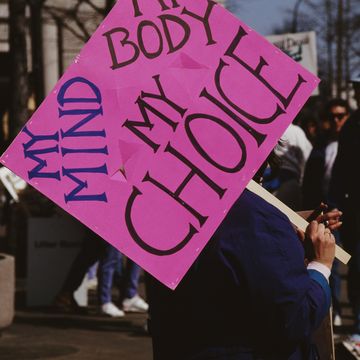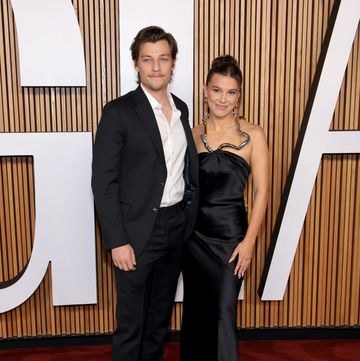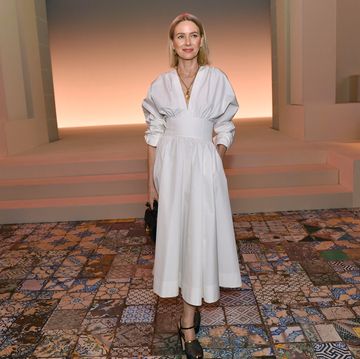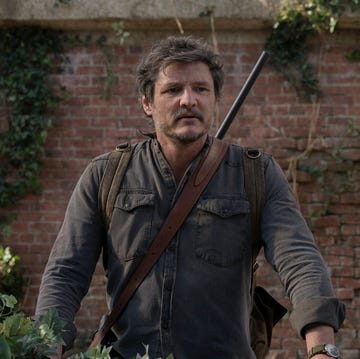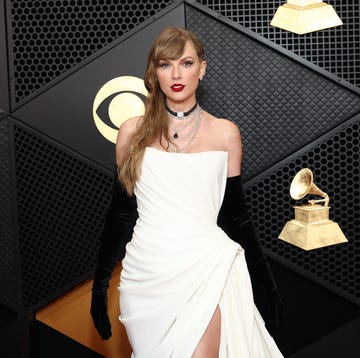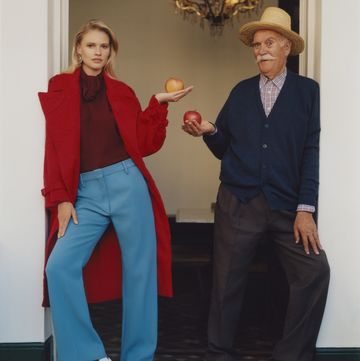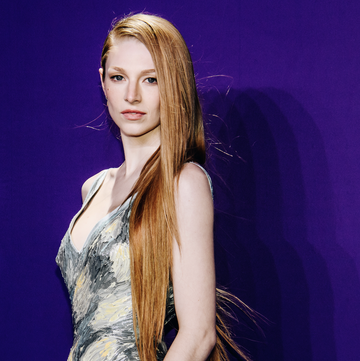There’s one question I can’t tolerate: ‘Where do you see yourself in five years?’ Hang on a sec while I speed dial Mystic Meg. Any crystal ball pre-empting my 20s would have shattered at the sight of a decade during which I graduated with a law degree, worked in bars and at newspapers, faffed about at radio stations, ran a magazine, ‘blogged’ and managed social-media campaigns. Recently, I moved from London to Los Angeles to concentrate on freelance writing full-time. Within six months, I’m writing/managing an artist/helping to run a record label/consulting for pop stars/birthing a script/developing a podcast. I often wonder if I’m moonlighting through life. Whenever I’m asked, ‘What do you do for a living?’ I think, ‘Which part of “living”, and how long do you have?’
My father – a retired GP who worked in one surgery for 35 years – regularly asks me to move back home so I can ‘work things out’. I’m going to be 29 this month. My mum was 39 when she had me. I don’t know if I’ll have figured out who I am in 10 years, let alone be ready to bring another individual into the world.Thankfully, I am not alone. We are living in the age of ‘slashing’, which has nothing to do with Guns N’ Roses and everything to do with a growing group of women in their 20s and 30s who are opting for more than one career at a time.
The term ‘slash career’ was first coined by author Marci Alboher in the 2000s. She described people with slash careers as those who turn the notion of moonlighting on its head. ‘Moonlighting was something you did shamefully while slashing has cachet, from lawyer/chefs, to mom/screenwriters.’ The phenomenon has grown into a full-blown cultural and generational shift in a world increasingly overcome with choice. So is this all a mirage, making it harder for women to feel satisfied in their careers? Or are women becoming empowered to make their multiple passions a reality? My friend Jen Long is a slasher based in London. She’s also 29 and is music editor of a start-up ticket-purchasing app called Dice. ‘I also do broadcasting, presenting, writing and A&R,’ she says. ‘You can do anything you put your mind to, can’t you?’
Jen left Radio 1 last year and identifies a lack of job security as a reason why we can’t put all our eggs in one basket. ‘I was 22, and I thought I’d be at the BBC for the rest of my life. In 40 years, I’d be Terry Wogan doing Eurovision,’ she laughs. Following the economic crash, everything is in flux. The more strings you have to your bow, the more you increase your chances, but Jen finds not everyone gets it. ‘A plumber came round to fix my sink, and was very concerned that I was unmarried and had no children. He couldn’t understand how I was making ends meet. But then he told me he was also a DJ and to check him out on Facebook.’
Sowing the financial seed is one catalyst for the slasher. A lack of turnover at the top tier makes us wary of letting someone else dictate our salaries and quality of life. According to the UK’s Office for National Statistics, in 2013 the gender pay gap between full-time workers increased to 10% and 37% of men were employed in higher roles compared with just 18% of women.
Tiffany Soi is a London-based construction project manager/yoga guide/competitive rock-climber, who decided, at 28, to establish her own yoga business. ‘You don’t necessarily want to do the 9-5 commute for the rest of your life,’ she says of the seemingly never-ending rat race. Tiffany believes building something you’re passionate about, in tandem, could allow for a full transition later down the line.
Keeping the day job is key. ‘Otherwise, if it falls apart, you’re screwed.’ Even women in the public eye, such as BBC broad-caster/touring DJ/face of her own brand (AMP) Annie Mac, recognise the importance of diversifying your wares to secure your future. ‘Three-quarters of my income is from DJing,’ she says. ‘The BBC pays, but it also provides a platform to have other avenues. I capitalised on that because my dream is to be able to just do radio every day.’
The financial impetus affects women in professional roles, too. Alison Linas, a 28-year-old lawyer in Virginia, became a Zumba instructor 18 months ago. A dancer growing up, she went back to her roots part-time. ‘I decided if I was doing Zumba several times a week I may as well get paid to do it. Having an extra source of income gives me more play money.’
Rather than climbing one ladder, women are swinging between disparate branches to achieve their goals. The Chartered Management Institute reported last year that women would have to work until they were 80 just to make up the income they’d lost in comparison with their male counterparts. Slashing is about regaining control, building our nest eggs our way.
There’s much more to slashing than economics, though. The Baby Boomers were encouraged to speed narrowly down one highway; Millennials are the first post-internet generation, educated in various pursuits (academia, sports, music). More international universities now offer multidisciplinary degrees, similar to the US approach, where a student’s decision to commit to one path is delayed. And today’s workers believe pursuing their aggregate passions trounces paper-chasing at any cost. In Douglas Coupland’s Generation X or Chuck Palahniuk’s Fight Club, the protagonists whinged about their day job, professing to be different people outside of work; Millennials ask, ‘Why can’t we be the same person all the time?’
Jen puts it well: ‘You don’t stop working, but you never start working either. I don’t get up in the morning and think, “Ugh, I’ve got to go to work.” I’m like, “Right, what am I doing today? Awesome.” It’s just my life.’
Catherine Anne Davies, 30, is a recording artist/touring member of Simple Minds/Doctor of Literature from London. She identifies with this more deep-rooted philosophical shift, too. ‘Slashing is psychological. A lot of women I know would be bored if they didn’t multitask,’ she says. ‘Women are drawn to fulfilment.’ Catherine’s own juggling has provided a security blanket for if and when she decides to stop touring. ‘My academia and my music are impossible to separate,’ she says. Touring may have made it economically viable for her to rest on her laurels, but she continues to do both. ‘You don’t switch off one side of your passion because the other one is paying the bills.’
The sense of empowerment this gives the slasher is what Malfi Dorantes, 27, attributes the growing trend to in Mexico City. There, she teaches in schools part-time in addition to owning a PR company, Malfico. ‘As a woman in Mexico, you used to be ›a secretary or a cook. In the past 10 years, we’ve started taking more risks in bigger roles. We’re trying to get as much as we can by ourselves – the more roles you have, the better.’
We now live in a landscape in which we’ll watch TV with an iPad in one hand and a phone in the other, so it’s only natural we’d apply that same distracted behavioural pattern to our careers, right? Catherine Anne Davies is eager to emphasise that slashing isn’t about flimsily pursuing a hobby, it’s about seriously committing to a self-propelled venture, then mastering it. ‘I think our ability for immersion has reduced,’ she says. ‘Your friendships are conducted superficially. Slashers have to throw themselves in whole.’
That said, one development facilitating slashing is social media and personal brand-building, where we leverage one opportunity to score another. The physical manifestation of this occurs in every Uber cab I take in LA, where drivers constantly flog their ‘real’ wares to me: furniture businesses, real estate, new-age beauty emporiums. On Oscars night, a driver asked me to wish him luck; he was nominated, as part of the cast of Whiplash.
Speaking to Alexis Krauss, one half of the US band Sleigh Bells, she says the only way she got her ethical beauty company, Beauty Lies Truth, off the ground was by launching it on Instagram and seeking comfort in an already established fanbase. ‘In the past, we’d have had to do way more development to launch a business. On Instagram, we could post pictures embodying our values and engage more people than ever.’
Alexis, 30, found herself pulled in two different directions, having studied social policy then worked as an educator before finding success in a rock band. The internet’s DIY culture allowed her finally to find a way of satiating both curiosities.
The only downside to having your cake and eating it? According to the American Psychological Association, millennial females are burning out much faster than before. ‘I’m working seven days a week,’ says Tiffany Soi. ‘When friends tell me they stayed in bed and did nothing for a day, I don’t know what that is.’
Catherine, too, thinks that people rarely talk about the huge sacrifices, preferring to airbrush out the blood, sweat and tears. ‘If you’re a slasher, you don’t have a choice. Your passions override any concerns you may have about the impact on your life.’
Talking to ex-Victoria’s Secret model Lyndsey Scott, 30, suggests that where there’s a balance to be struck, slashing allows women to be happier than ever. As an actress/coder/app developer, she’s been filming in LA and writing a tutorial for iOS, having gained financial security via modelling. ‘I don’t feel I have to sacrifice anything because I do things I love. It doesn’t feel like work.’
Alexis, too, draws inspiration from busier Millennials, such as actress/businesswoman Jessica Alba and Beyoncé. Slashing allows a generation of women more power over their futures and they’ll take educated risks to make it work. I ask Jen what she says when people ask her where she’ll be in five years time. ‘I tell them, 'I’m gonna be your boss.'
With these kinds of smarts, I wouldn’t be afraid of following their lead.
THE SLASHERS’ GUIDE TO SUCCESS
1. BE PATIENT
Annie Mac Radio 1 Broadcaster / DJ / AMP Founder
‘With Radio 1, I always had a plan. But with launching my AMP business, it grew very naturally. We took 10 years to get to the point of playing Brixton Academy shows, and I think that’s right. I realised after about a year that I had a business, and a team, and this was a brand. I’ve never been a real business person, but I’m finding it very interesting.’
2. CONSIDER HOW YOUR JOBS CAN COMPLEMENT EACH OTHER
Lyndsey Scott Actress / Model / Coder / App Developer
‘I’ve made apps about modelling. One of the reasons I moved to LA, other than acting, was to produce a tech-related TV show, so I’m doing that as well. My main passion is acting, but all my paths have led me here. Doing all this in tandem helps to eradicate geeky connotations people have with professionals who work in the tech industry.’
3. DEFINE YOUR OWN ROLES
Jen Long Dice Music Editor / Broadcaster / Manager / A&R / Writer
‘My flatmate always says, “You shouldn’t apply for a job that’s going, you should create the job you want, something you can do really well.” At Dice, I am “the music editor”, but because we’re a start-up and nobody’s done this before, I just define my own role. It encompasses everything – HR, writing micro copy for the app, giving talks at universities, bringing in events, doing brand and artist relations – everything. Soon, I’m going to be a boss, too, which is going to sound even sexier.’
4. USE YOUR TIME WISELY
Tiffany Soi Construction Project Manager / Strala Yoga Instructor
‘Don’t quit everything you do to pursue the one thing you’re interested in. That’s not financially viable. My job is flexible so it affords me the time out to teach or set up opportunities. I didn’t have much time in a more corporate space, whereas now I can keep working on challenging projects but still leave space to build my own venture. Be realistic.’
5. THINK CREATIVELY
Alexis Krauss Musician / Founder of Beauty Lies Truth
‘Once the band was established and I had time between tours, I thought about how I could re-engage with my passion for activism. I was often asked about my beauty regime and started to think about beauty in the way I thought about food and health, and how I could use my platform for others interested in that. We want to grow Beauty Lies Truth from a blog to a site where people can come to learn about the safest products and purchase them.’
6. DON’T GIVE UP AT THE FIRST HURDLE
Catherine Anne Davies Musician / Academic / Author
‘You rarely see the blood, sweat and tears on Instagram, only the finished product, and I think that airbrushing of the process behind reaching “success” is what people need to be more aware of before embarking upon multiple careers. It’s a huge sacrifice of time and stress. You don’t necessarily see all the casualties along the way and all the people who don’t make it work.’
7. PLAN YOUR WEEKS METICULOUSLY
Malfi Dorantes Owner of PR Agency / Teacher
‘You have to be very precise with your time; plan your entire week, be very specific about which nights you go out. You shouldn’t be working 9am-8pm with just one break. It won’t get the best performance out of you. In my PR agency, we don’t work on Fridays because I realised that Fridays are the least productive day of the week in our field. That helps me out a lot personally. Having a job where I dictate when I arrive makes more diverse things possible with my career paths.’
8. HAVING MORE THAN ONE JOB CAN HELP
YOU UNWIND
Alison Linas US State Prosecutor / Zumba Instructor
‘If you’re the type of personality who likes to be busy, you’ll get bored if you focus on only one thing. At school, I had loads of different extracurricular activities I’d be into. Why not continue that search to do multiple things once you’re in the job market? Otherwise the monotony of my everyday job would be too much. The other role can act as a positive distraction.’ ●
Words by Eve Barlow

